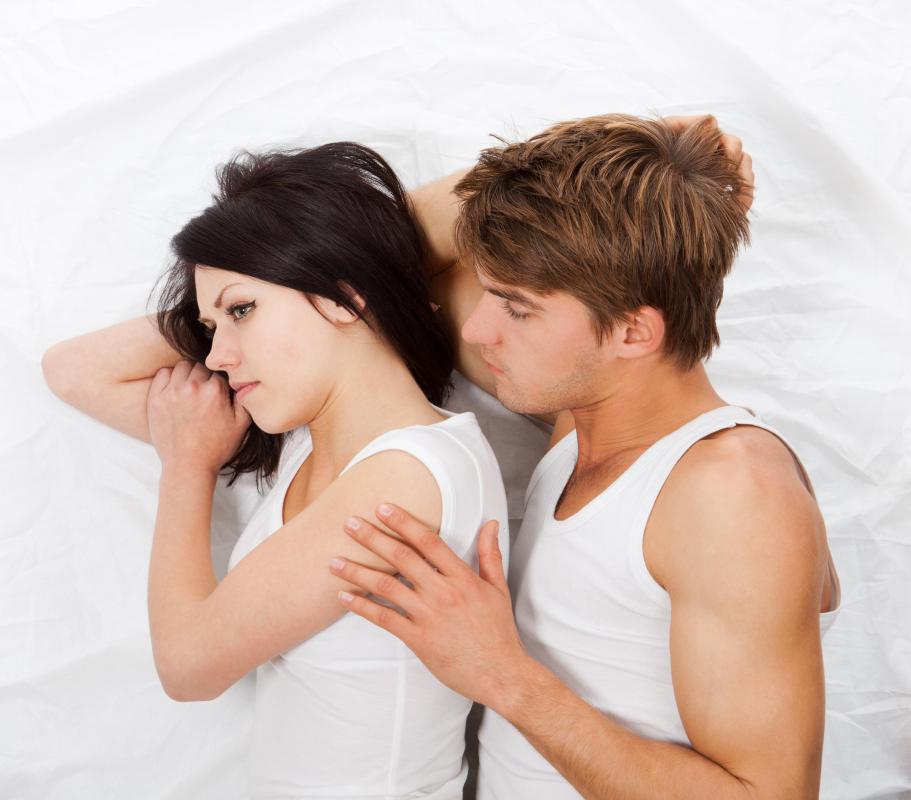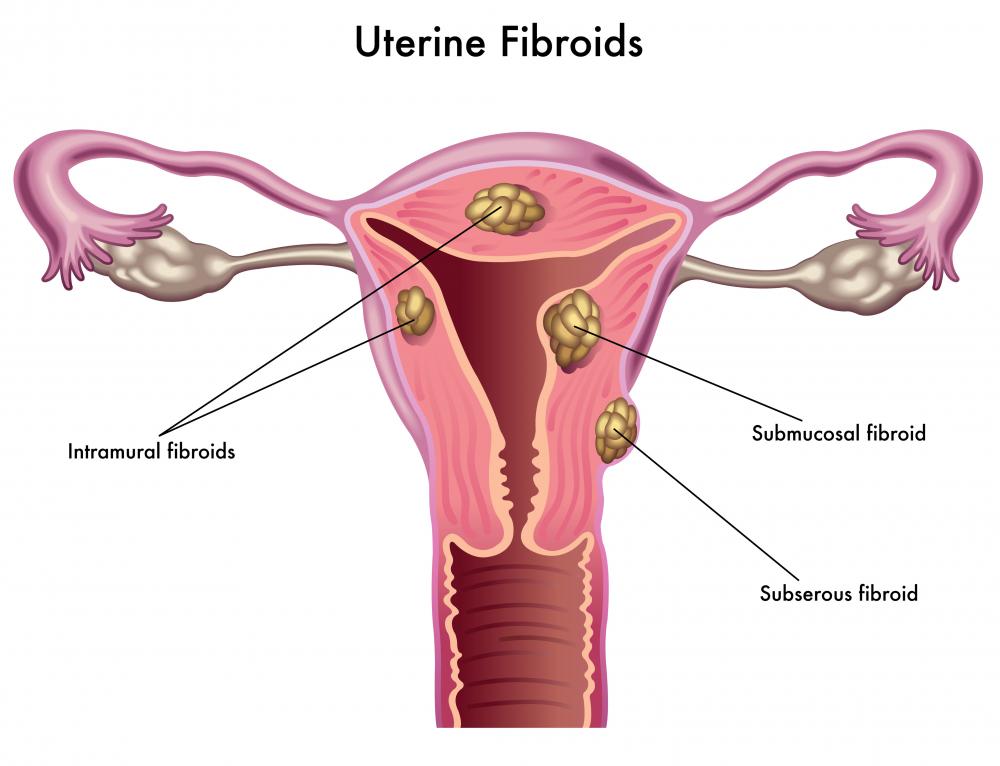At WiseGEEK, we're committed to delivering accurate, trustworthy information. Our expert-authored content is rigorously fact-checked and sourced from credible authorities. Discover how we uphold the highest standards in providing you with reliable knowledge.
What is the Effect of Estrogen on Fertility?
Estrogen is the hormone that dominates the first part of the menstrual cycle in females, while progesterone tends to dominate the second part, just after ovulation. Both hormones must be kept in balance in order to be able to conceive, which is why there is a negative effect of too little or excessive estrogen on fertility. Having too little of this hormone can cause the uterus lining to be too thin to carry a pregnancy, and can even stop ovulation altogether. Too much estrogen can cause a drop in libido, and may even lead to reproductive issues like PCOS or endometriosis. The effects of estrogen on fertility can also be observed in men, as some exhibit an excessive amount of this hormone.
The first half of the menstrual cycle is controlled by estrogen, which allows the body to ovulate toward the middle of the cycle. If there is not sufficient estrogen, the body will likely not ovulate, or release eggs. A woman can usually tell that she is not ovulating regularly when she does not notice much cervical mucus throughout her cycle, and also stops getting her period every month, which makes it clear that there is a negative effect of insufficient estrogen on fertility. Additionally, she may have hot flashes, night sweats, and headaches. Low estrogen levels are typically caused by being too thin, exercising too much, or having an underlying medical condition that does not allow the release of eggs.

While there is an obvious effect of too little estrogen on fertility, it is also known that too much estrogen can impair fertility, as well. About halfway through the cycle, just after ovulation, the hormone progesterone should take over, and the cycle will either end in pregnancy, or the breakdown of the uterine lining via menstruation. Too much estrogen can lead to too little progesterone, and may also cause medical issues that are not conducive to regular ovulation, such as endometriosis, PCOS, uterine fibroids, and uterine cancer. Additionally, estrogen dominance can reduce libido greatly, usually leading to less intercourse and fewer chances to conceive. Excessive estrogen is typically caused by being overweight, having a poor diet, and experiencing too much stress.

Men have a small amount of estrogen in their bodies, often balanced out by a lot of testosterone. Some men make too much of this hormone, or take it artificially to solve certain medical issues. Unfortunately, there is a negative effect of estrogen on fertility in men, such as low libido and low sperm count. Therefore, it is important to get this problem fixed to make conception likely.
AS FEATURED ON:
AS FEATURED ON:

















Discussion Comments
Estrogen is important for both men and women. It affects both of their fertility, especially when it's too low. Lower than normal estrogen in men affects sperm production.
@turquoise-- I don't quite agree with you. Doctors use blood tests to determine the levels of different hormones in the body when a woman is having difficulty conceiving. If there is low estrogen or high estrogen, there are hormonal treatments that can be used to re-balance these levels. These treatments work because they are not used during the entire month. Since the first part of the menstrual cycle relies on estrogen and the second part, progesterone, estrogen medications are used only in the first part. I believe this is called the luteal phase. So when used correctly hormone treatments will not disrupt hormonal balances, they will re-balance them and improve fertility.
This is a very informative article. I always thought that estrogen has positive effects on fertility because many fertility supplements aim to increase estrogen in the body. But now that I know the effects of too little or too much estrogen on the body, it's obvious that these supplements are not always beneficial.
Can we then conclude from this information that estrogen in the body needs to be regulated through natural methods rather than medications or supplements? Because won't these treatments upset the balance of estrogen in the long-run and reduce fertility rather than improving it?
I'd like to hear everyone's opinion on this, especially opinions of women who are trying to conceive. Let me know what you think.
Post your comments